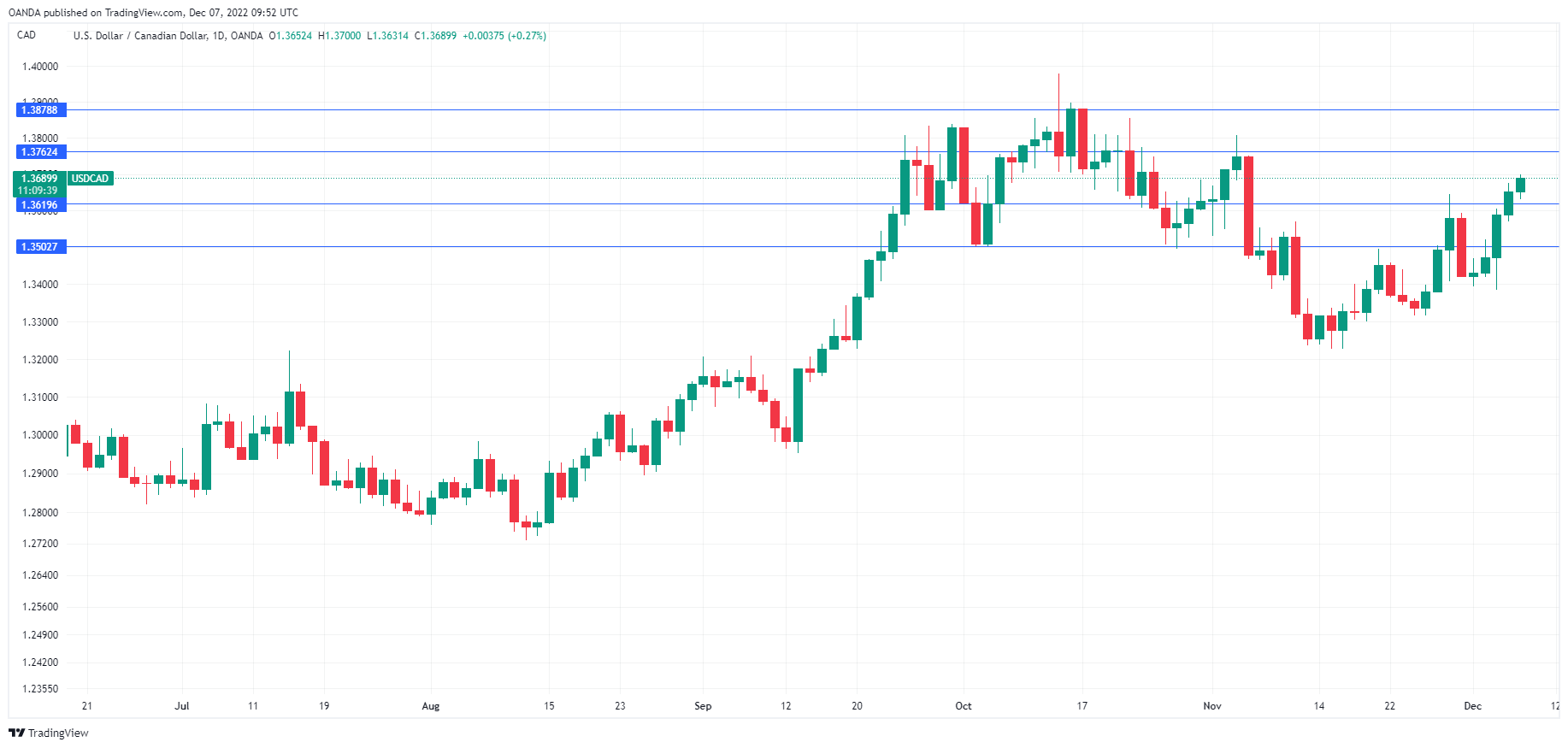The Canadian dollar edged lower on Wednesday. In the European session, USD/CAD is trading at 1.3686, up 0.25%. December has started on the wrong foot, as the Canadian dollar is yet to post a winning session.
Will BoC push the 25 or 50 button?
The Bank of Canada hasn’t hesitated to put the rate pedal to the floor as it continues to battle high inflation. In July, the BoC raised rates by a full point but has been gradually easing since then, delivering a 75 bp hike followed by a 50 bp increase. Will the easing trend continue at today’s policy meeting? The markets have priced in a 72% likelihood of a 25 bp move, bringing the cash rate to an even 4.0%. A 50-bp hike would be considered a surprise hawkish move and would likely boost the Canadian dollar.
The previous meeting in October was also live, with a 50/50 split over whether the BoC would raise rates by 50 or 75 bp. In the end, the BoC opted for the smaller hike, with Governor Macklem warning that he expected a ‘significant slowing of the economy to occur. Investors will keep an eye on the rate statement and Macklem’s follow-up presser to see if his view has changed. Inflation was unchanged in October at 6.9% but is well below the 8.1% clip in June. Macklem’s comments about the economy's health and the direction of inflation could affect the movement of the Canadian dollar.
With the New Year just around the corner, what can we expect from the BoC in 2023? The terminal rate is projected at around 4.5%, which would mean several more rate hikes early next year. Of course, rate policy will be heavily dictated by critical data such as employment, consumer spending, and inflation. In addition, the BoC will want to keep pace (or close to it) with the Federal Reserve, which is widely expected to raise rates by 50 bp next week to prevent the Canadian dollar from falling further.

USD/CAD Technical
- There is resistance at 1.3762 and 1.3879
- USD/CAD has support at 1.3619 and 1.3502